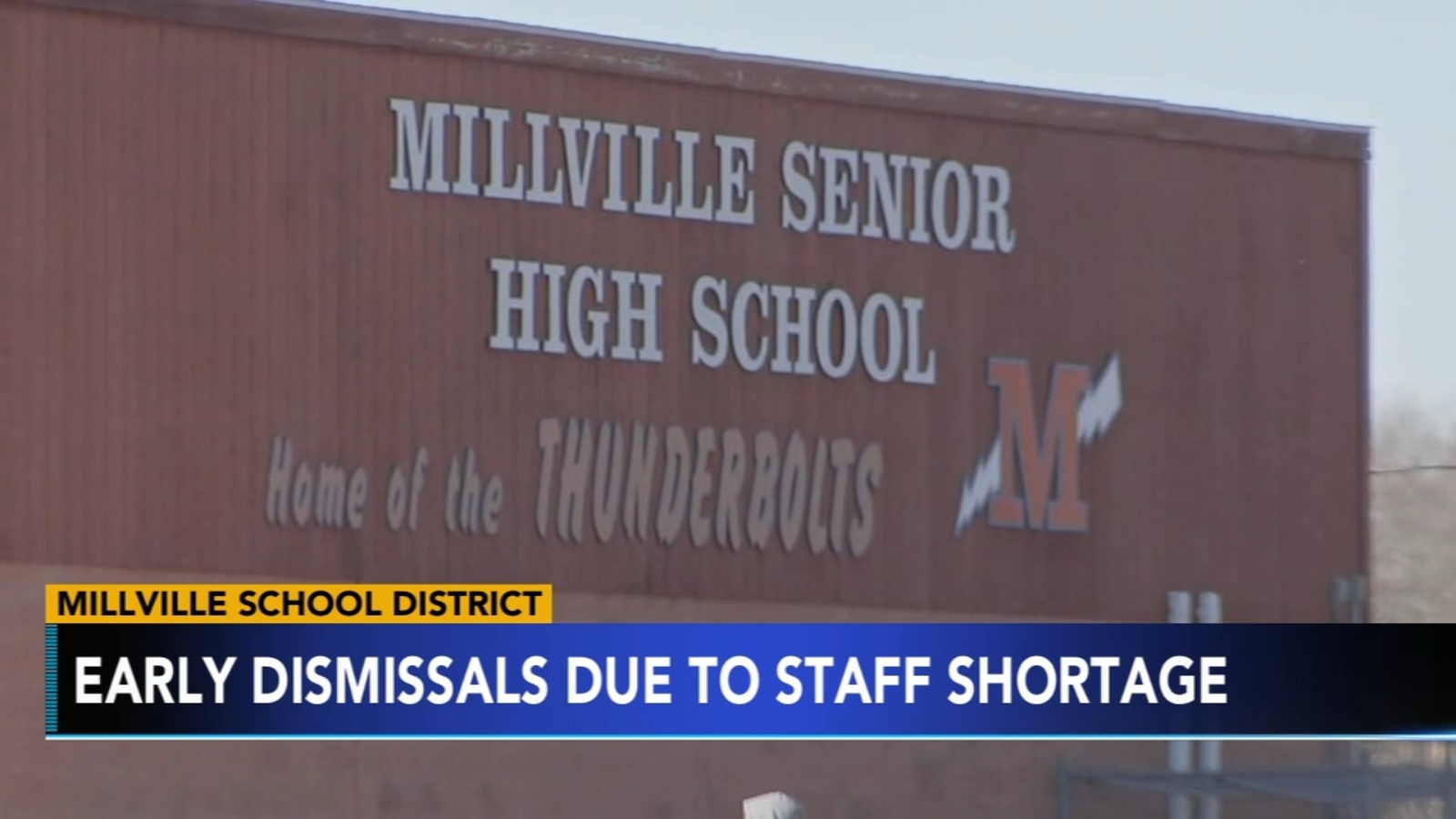
Lakewood Settles Case With Administrator Who Served as a ‘Scapegoat’
January 28, 2022
Cumberland County District Will Have Half-Days All Month Due to Lack of Teachers
January 31, 2022Asbury Park Union President Files Grievance Against District
Good Morning,
Pursuant to my discussion with NJEA attorney Stephen Hunter, as well as NJEA Field Representative Tracie Yostpille, I am reluctantly forwarding my rebuttal email in regard to my most recent evaluation and the flawed process of the supervisor. She refused to change anything, even though the “intent of AchieveNJ is for those post observation conferences to allow dialogue that would lead to improved scores.” This is a clear violation to any staff member where an administrator will not discuss the evaluation to allow the proof to be seen. If this has happened to you, please email Stephanie Kelly at seksam1@yahoo.com, so a formal grievance can be filed.
This was truly a blessing being thrown into a classroom so I can formally witness and be victim to what is going on with this travesty. I feel everyone’s pain and think I have learned a lot in the past 5 months.
Again, if you have any questions, please don’t hesitate to contact me.
In Solidarity,
John Napolitani
President
That’s a letter sent to all member of the Asbury Park Education Association (NJ Ed Report received multiple copies) by their president, John Napolitani, regarding a grievance he is filing against the district. Why? Because during his scheduled evaluation, the administrator assigned to him failed to follow the regulations set up by the state to go with a 2012 teacher tenure and evaluation reform bill called TEACHNJ, short for “Teacher Effectiveness and Accountability for the Children of New Jersey Act.” The law and its regulatory apparatus, AchieveNJ, are supposed to provide teachers with detailed, practical feedback and streamline the process for tenure removal when teachers are rated “ineffective” two years in a row.
Most staff member lament the labor involved to provide evaluators with evidence of effective teaching. Yet it seems to work better than the old “pass/fail” method because, when done professionally, these evaluations (most NJ school districts use Charlotte Danielson’s “Framework for Teaching; see photo above”) are comprehensive, fair, useful, and apolitical.
Except when they’re used as a weapon.
Which brings us to Asbury Park.
For several years now, APEA has been engaged in a battle with district leadership, first with former superintendent Sancha Gray (who departed to work for her predecessor at Kean University) and now with Gray’s successor, Mr. Rashawn Adams, whose appointment by the School Board involved a decision to not bother interviewing any other candidate. As one example, this past October Adams and Napolitani got into a heated exchange (emails here) regarding the district’s failure to provide sufficient Covid protection or include stakeholders in the allocations of federal emergency funds, as required by the Biden Administration.
In this particular instance, Napolitani was evaluated by Kimmy Taylor (one of the district’s five “Supervisors of Curriculum and Instruction,” the most exhorbitant ratio of administrators to staff in its peer group); Perry Medina, principal of Martin Luther King, Jr. Intermediate School, is also listed. (Back story on Medina here.)
Napolitani has been teaching for 23 years and, he says in the letter below, says he has always received ratings of either “Effective” or “Highly Effective.” This time, for the first time ever, he was rated “Partially Ineffective,” a big blot on his record that comes with repercussions like corrective action plans (“Educational Support Tools” in DOE parlance), a potential year-end evaluation of “Partially Proficient,” and, eventually even loss of tenure.
Does he deserve this? Not according to Napolitani, who took the time to rebut the evaluation in writing. This is key: One of the most important steps in this process is the post-evaluation conference which occurs after the teacher has received their full rating, intended as a collaborative session where the evaluator explains any concerns, the teacher has an opportunity to rebut any negative findings and provide additional evidence of effectiveness, the evaluator makes changes, and the two parties agree on the final report.
This didn’t happen to Napolitani in Asbury Park. Instead, there was no post-evaluation conference and his evidence was ignored. The administrator told him she wouldn’t consider any evidence, a clear violation of TEACH NJ and the reason for the grievance.
Here is the full text of Napolitani’s letter to his evaluator. He refers to the evaluator’s “harassment and intimidation” and rebuts, point by point, the evaluator’s narrative of his classroom instruction.
Good Evening:
Pursuant to the signing of my observation last Thursday afternoon under complete duress and total disagreement, and the Educational Support Tool (EST) that I have now been placed on, please allow me to explain why I did not originally sign the document on December 22, 2021. My apologies but I was under the impression that a staff member could have a discussion with a supervisor to rebut the observation prior to me being placed on an EST based on what you allegedly missed and what is actually going on in the room. It was a total misunderstanding that we could have a professional dialogue about this observation.
Therefore, before I begin my rebuttal, there are a few things I must point out. Please note this is harassment and intimidation at its best. Please note that in the 23 years I have been in the district, my teaching practices and classroom management skills have always been stellar. Please note the following:
- There are 3 pictures attached here that have been in place since day one.
- Data binder has been on my desk since scores came in and I have no clue how you didn’t see it.
- Students were engaged in the process.
- Students with hoodies on is ridiculous. I have no heat and the window is open for ventilation. I really doubt a hoodie has anything to do with learning and they were NOT disruptive.
- The video gets played and then questions are asked. Again, no formal training so not sure why this was an issue.
- There is a “Plan B” as it relates to chrome books that are not working but you ignored it.
- Routines are and have been in place since September.
- All but two students should be in Read 180 as their lexile scores exceed what’s needed for intervention.
- This intervention program is not for these particular students except for two students.
- In the multitude of harassing district walkthroughs, none of this pointed out.
As it relates to the evaluation:
- Pg. 4 (Knowledge of prerequisite relationships) – Students were grouped according to their R/I [Reading Inventory] and modifications are made every 2 weeks.
- Pg. 5 (Knowledge of the learning process) – Again, followed the program starting with whole group then transitioned into small group. This is the requirement of this scripted program.
- Pg. 7 (Value, sequence, and alignment) – Again following the program.
- Pg. 10 (Use of planning) – Plans are already done.
- Pg. 12 (Importance of content) – I never sit in my chair throughout the class. You heard me “with conviction” in my voice as I am everyday.
- Pg. 12 (Expectations of learning and achievement) – A complete and utter lie. I have very high expectations.
- Pg. 12 (Student pride in work) – How did you evaluate their pride? Did you ask the students?
- Pg. 13 (Management of instructional groups) – This is an insulting score. Routines have been and are in place since day 1. Again, without training. While in a small group, I am looking at the others but focused on the small group which is the meat and potatoes of the program. Students take their time to pick their own books on their own lexile if they are available. Again, I had no supplies to begin the year so I did the best I could.
- Pg. 13 (Management of transitions) – Transition is clear – books are put away when small group is done. Students move to the next group. Students are aware of their duties in their group.
- Pg. 13 (Management of materials and supplies) – Data binder was on the desk. How you didn’t see it is beyond me. You must not have looked too hard since it’s been there since the R/I was implemented.
- Pg. 13 (Performance of classroom routines) – An absolute insult. Where was the time off task??? I did not stop from the time you came in. I followed the program as it says.
- Pg. 16 (Expectations of learning) – The required video was the hook. I said the word “adapt” multiple times which is a Quad D word from the verb list. Higher level thinking.
- Pg. 16 (Directions for activities) – Who was confused? They were all doing their work.
- Pg. 16 (Explanations of content) – Ask 3 before me and they know this procedure. Independent work is a skill. They work as a team.
- Pg. 18 (Grouping of students) – Grouped according to lexile scores as required. They take the required Read 180 quizzes and data is reviewed every week.
- Pg. 19 (Assessment criteria) – These students are on grade level as per their lexile scores. Adjustments are made accordingly.
- Pg. 19 (Monitoring of student learning) – Questions are asked throughout the lesson. That’s relevant to hook the interest in the subject.
- Pg. 19 (Feedback to students) – How was this vague? They got feedback throughout the lesson.
- Pg. 19 (Student self assessment) – No idea what you mean here.
It is my hope that you will review this rebuttal and make some significant changes. If no changes are made to the evaluation, I am formally requesting a model lesson from you for the entire timeframe of the intervention block of time.
Thank you and I look forward to hearing from you.




